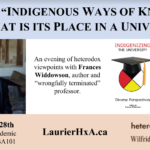On November 1, 2024, Kisha Supernant, a professor of anthropology at the University of Alberta, will be giving a talk at Mount Royal University.

Supernant was also featured on MRU’s website about her “‘heart-centred’ archaeological practice‘”. This kind of “archaeological practice”, according to MRU professor Mary-Lee Mulholland, “innovative” and “pos[es] some really important ethical questions about research for whom, when and how.” We are told in the article that “Supernant is helping to mold a new form of archaeological research by integrating Indigenous ways of knowing and ‘heart-centered’ practices into archaeological processes” that “[support] Indigenous communities that are working to affirm their rights to tell their own histories and care for their own cultural heritage”. According to Supernant, “By focusing on care and emotion, we create safer spaces for diverse perspectives and interpretations, allowing for a fuller, more nuanced, and more respectful understanding of the past…This method does not abandon rigour, but reimagines it as part of a balanced approach that considers the emotional and relational dimensions of archaeological practice, ensuring that our work remains both intellectually and ethically grounded”.
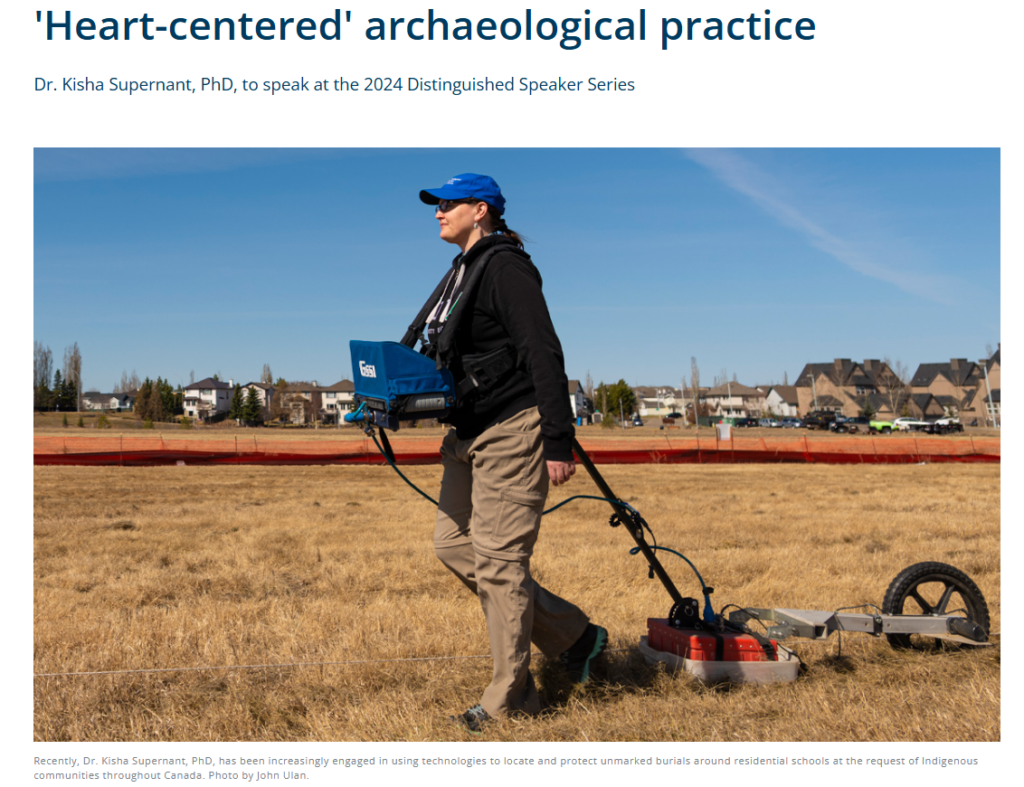
As will be shown below, Supernant cannot be considered to be “distinguished” in her work on the “unmarked graves”. Instead, she has fuelled misinformation about the “remains of 215 children” being discovered Kamloops (they haven’t), and engages in various sophistic tactics to prevent the truth about this case from emerging. She was also involved in a campaign to cancel Elizabeth Weiss, an anthropologist at San Jose State University.
On April 15, 2021, Elizabeth Weiss and James Springer gave a presentation on “Has Creationism Crept Back Into Archaeology?”

After the presentation was given, Kisha Supernant implied that the presentation caused “harm” to indigenous archaeologists as it questioned the “very humanity” and “human rights” of indigenous peoples.

On May 29, 2021, Supernant appears to have authorized the claim that the organization that she was heading “was devastated at the news that many graves of children who went missing at the Kamloops Indian residential school have been located”. This statement has not been retracted.
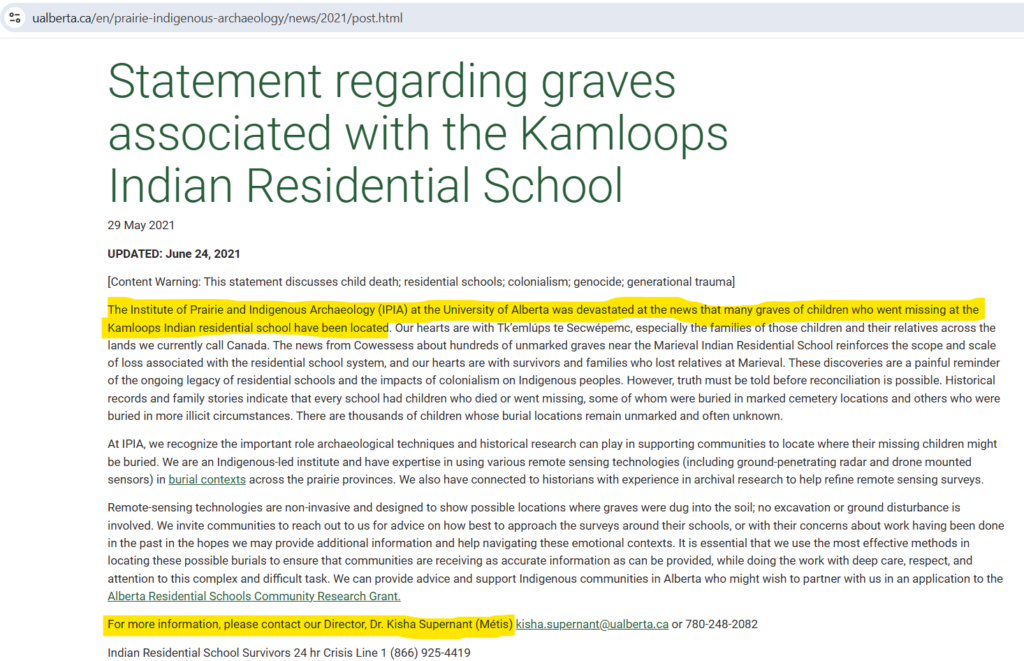
On July 15, 2021, when Dr. Sarah Beaulieu made her presentation stating that “200 anomalies” had been found, not the “remains of 215 children”, Supernant asserted that she was “very reassured by the results presented today and confident that these results indicate a number of highly probable burials and targets that definitely warrant further investigation” but that “we shouldn’t require the scientific application of GPR in order to confirm or validate stories and experiences and the testimonies of…survivors…”.
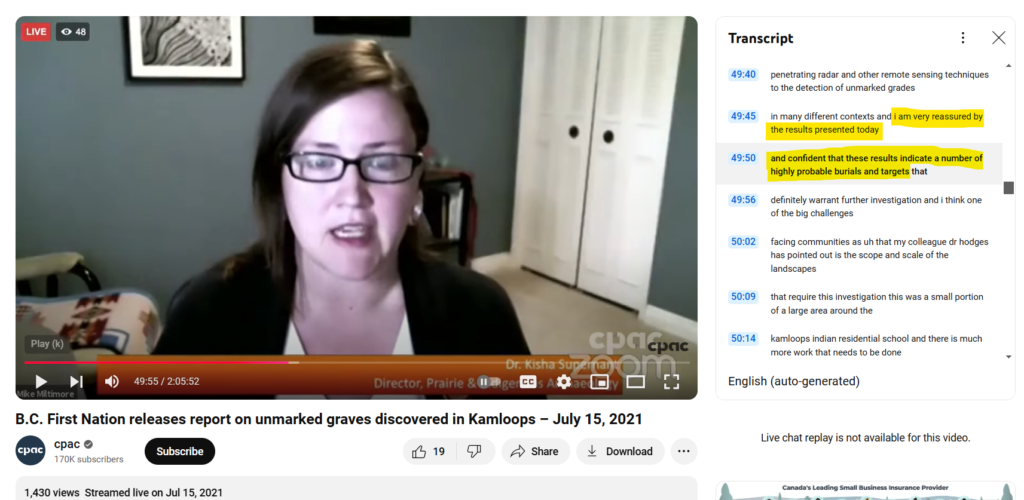
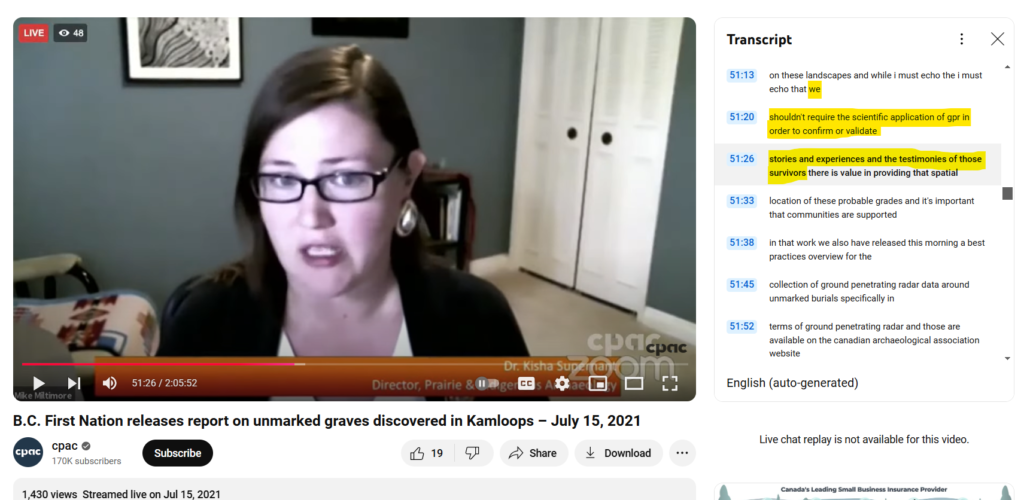
On October 27, 2021 in the New York Times, Kisha Supernant stated that “the oral histories of former residential school students are sufficient proof that many of the missing children – of which there are 10,000 to 15,000 total, by current estimate – were buried in unmarked graves on school grounds”.

On December 5, 2021, Supernant decided to leave the SAA

On January 18, 2022, Supernant enters into discussion with academics Wakefield, Riddle and Mosby that excavations are not needed as proof of clandestine burials being claimed by an indigenous group. In this conversation, Riddle claims that questions about this are “racist journalism”, and Supernant asserts that this is “denialism”.
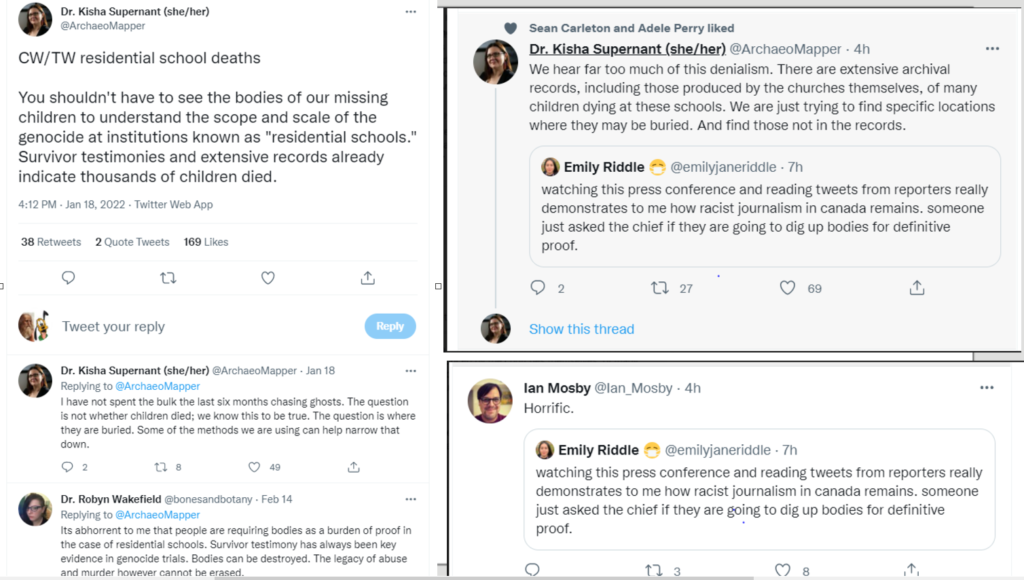
On May 27, 2022, Supernant makes arguments against excavating to determine if there actually are the remains of children. She claims that this is “deeply disrespectful”.
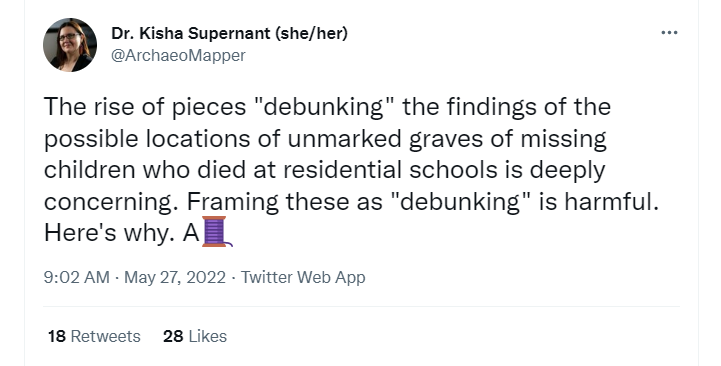
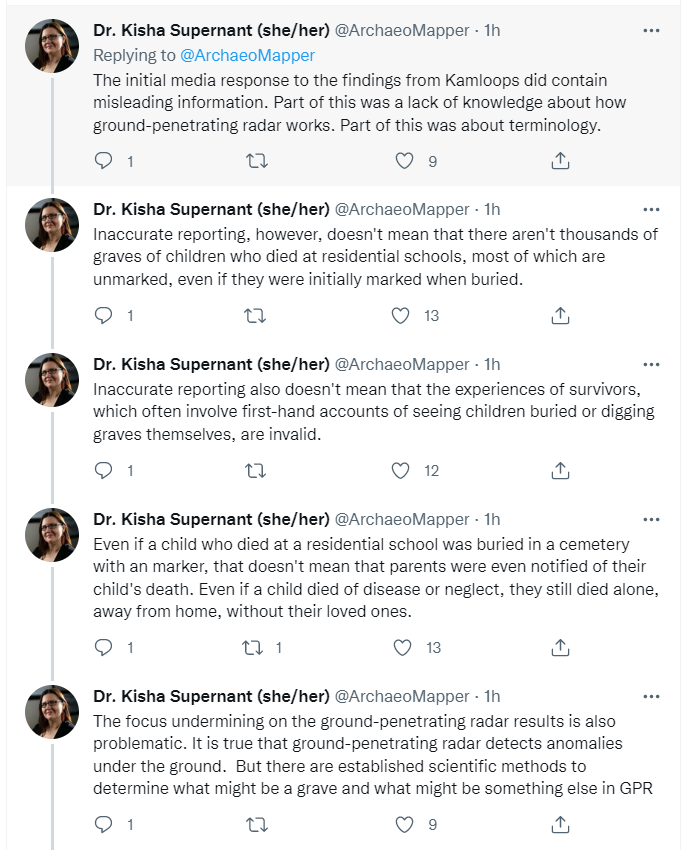
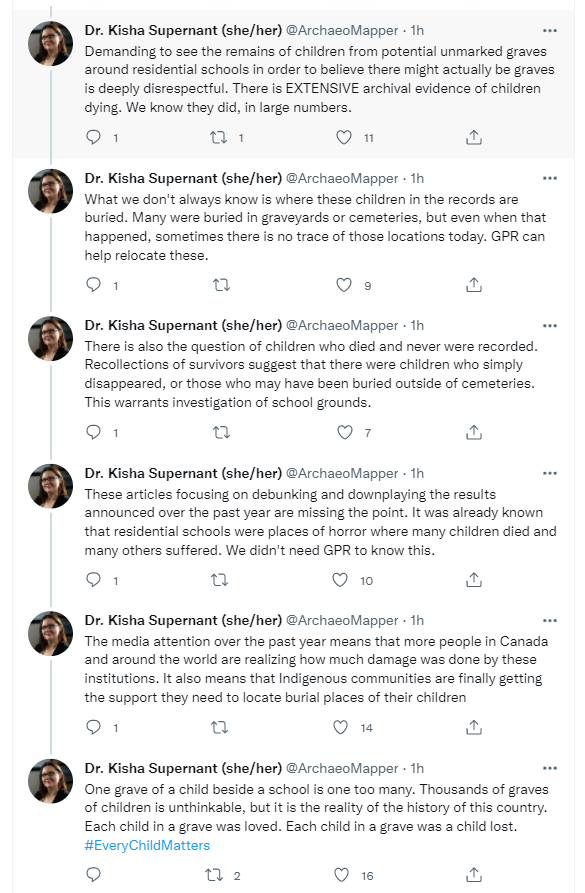
On May 22, 2022, Supernant’s arguments in the above Tweets are characterized in terms of the “motte and bailey fallacy”.
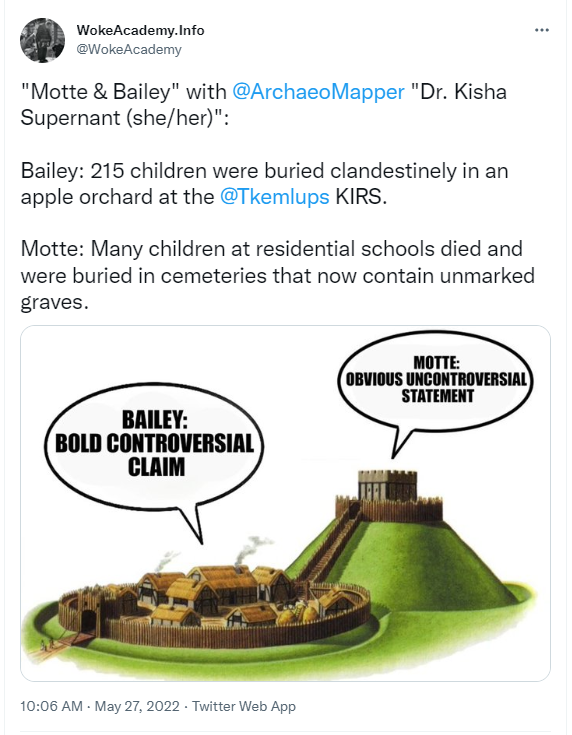
On May 30, 2022, Supernant states that the “premise that this is up for debate” – i.e. Terry Glavin’s arguments about the “year of the graves” being manufactured in the media – “does harm”.
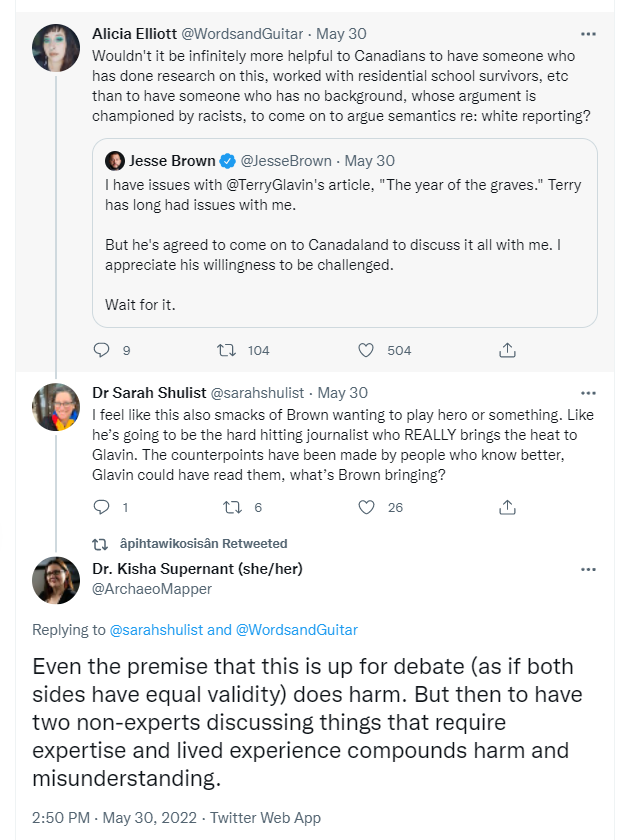
On May 30, 2022, Kisha Supernant and Sean Carleton “[anticipate] more denialism”.
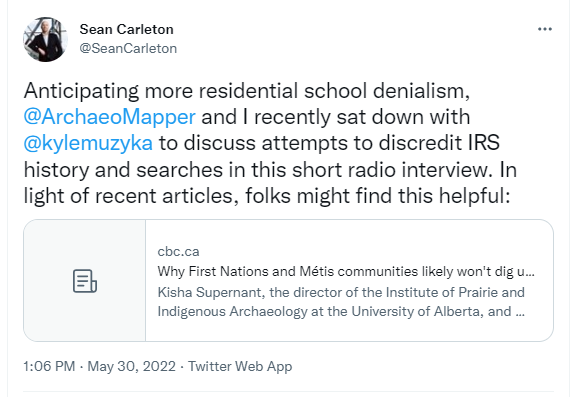
In this “anticipating more denialism” interview, Supernant says, according to Muzyka, that “we can support communities through this incredibly difficult process by believing survivors and not asking communities to dig up their relatives”.
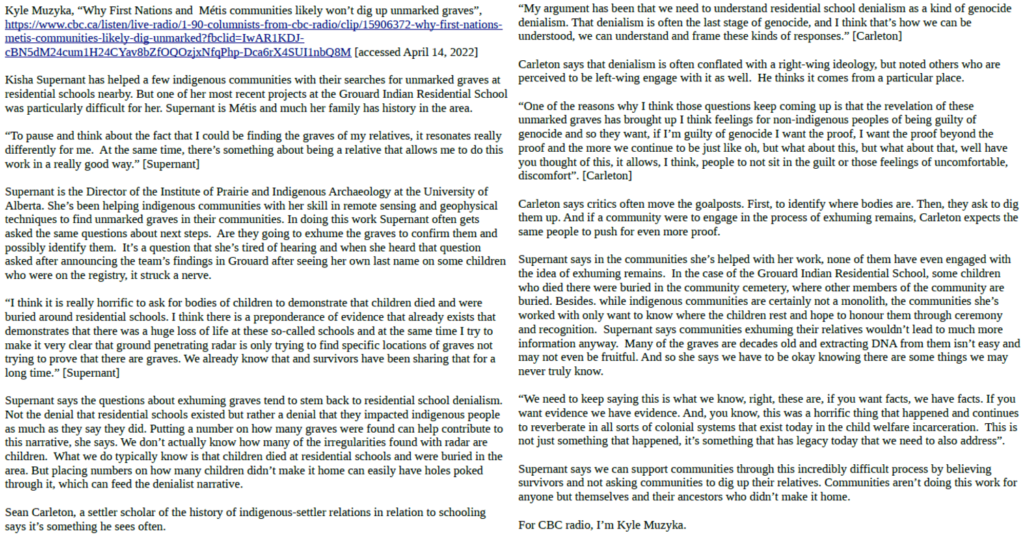
On June 3, 2022, Kisha Supernant and Sean Carleton wrote an opinion piece for CBC News about “fighting ‘denialists’ for the truth about unmarked graves”.
On June 3, 2022, Supernant summarized her position in the article. According to Supernant, after demands were made to make excavations to investigate claims that the “remains of 215 children had been found”, “Indigenous people do not owe anyone the bodies of their children”.
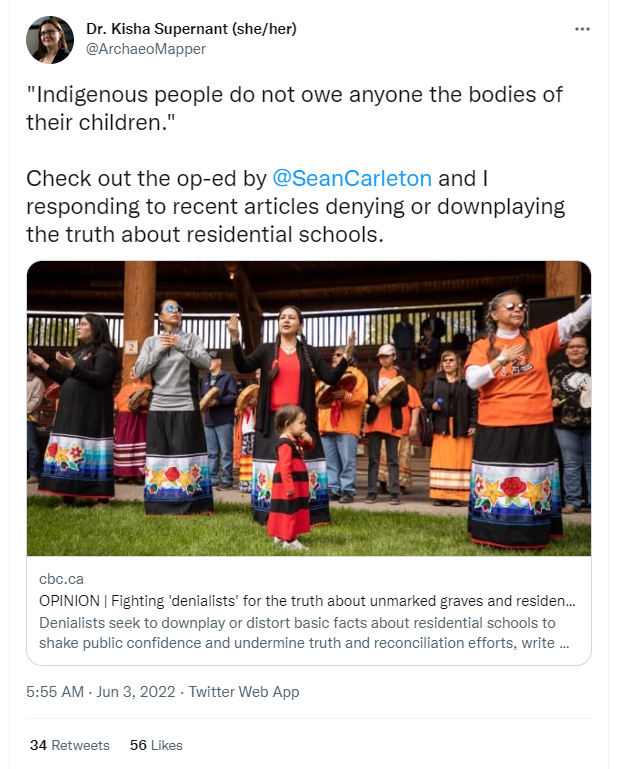
Widdowson emailed the CBC and made a pitch to respond to the article, but her request was denied. As a result, she wrote a reply in True North. This was summarized in Widdowson’s piece “Relative Truths and Rent-Seeking“.
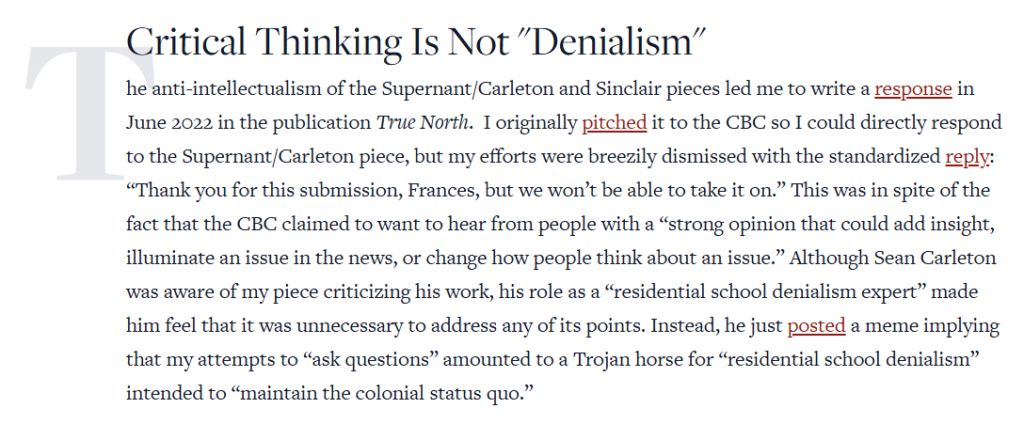
On July 1, 2022, Supernant retweeted misinformation from APTN News that the Kamloops Band had “discovered unmarked graves on the site of the former Kamloops residential school”. This was one year after Dr. Sarah Beaulieu, the GPR expert who was hired by the Kamloops Band to do the survey, announced that it was 200 anomalies that had been “discovered”, not “unmarked graves” (a presentation that Supernant attended and commended).

On July 10, 2022, Supernant argues that archaeologists must “decenter science as the only path to truth or valid knowledge” and that “Indigenous knowledge doesn’t have to be science to be valid”.

On September 27, 2022, Supernant distorts the skepticism about Kamloops by implying that “denialists” are claiming that there are no “graves of children who died at these institutions”.
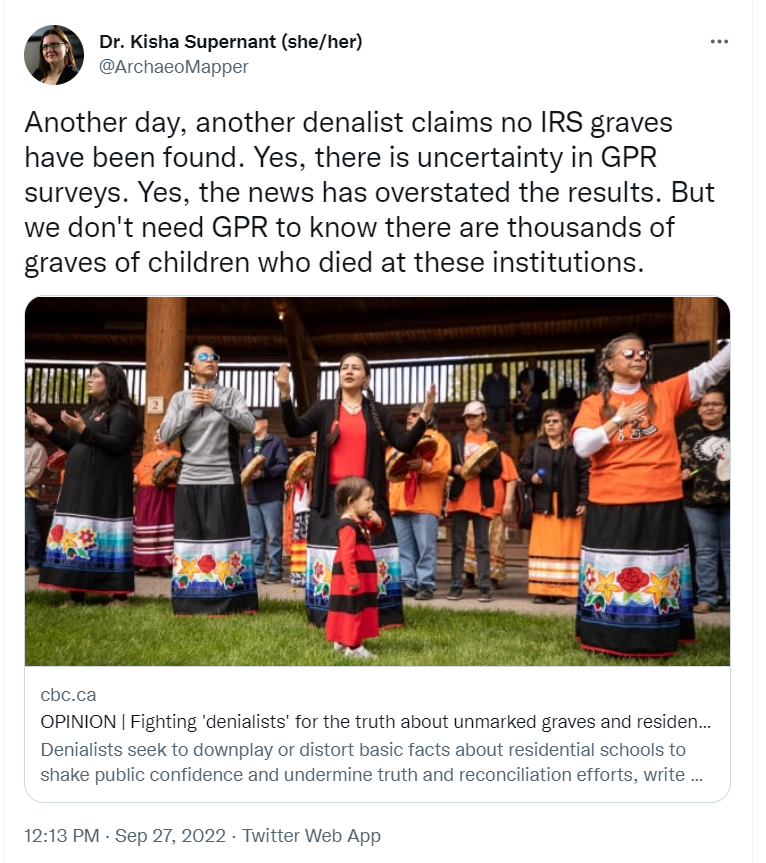
On November 21, 2022, Supernant appears to support the contention that there are “Two hundred and fifteen unmarked graves” in the Kamloops apple orchard because “we don’t need ground-penetrating radar to know that thousands of children died” and that she “know[s] the difference between a pipe and a potential grave”.
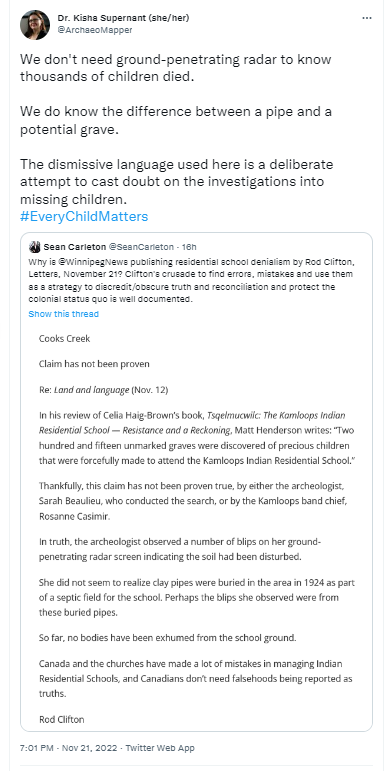
On March 8, 2023 Kisha Supernant criticized Richard Dawkins for saying that Maori “ways of knowing” were not science.

On April 1, 2023, Supernant asserted that “residential school denialism is genocide denial” on the basis that the government “unanimously recognized [the residential school system] as genocide”.

On June 16, 2023, Supernant appears to agree with Kimberly Murray that “residential school denialism” should be criminalized.


